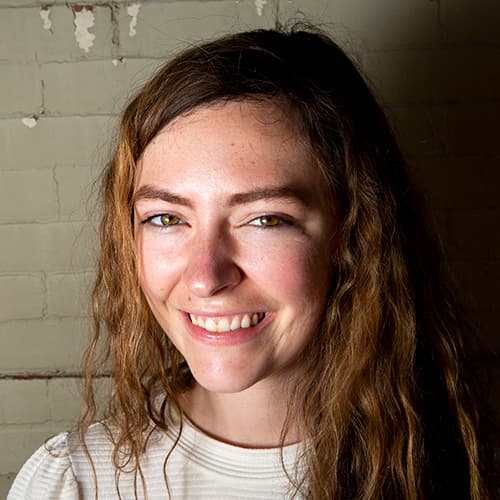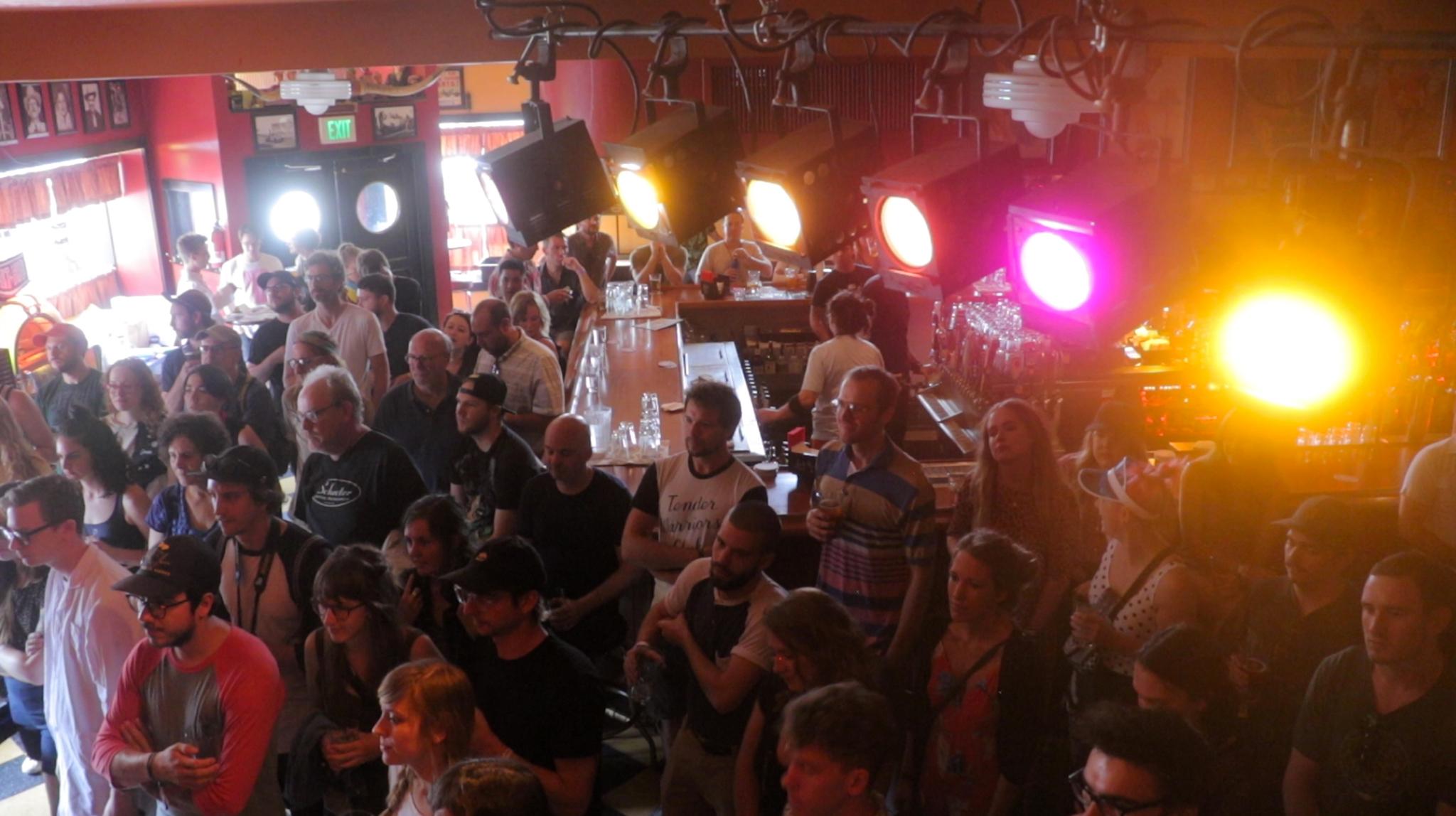A year ago, Denver's biggest weekend in music was shut down by COVID. Underground Music Showcase's cancellation impacted local artists who benefitted from the exposure and support the festival offered, as well as businesses and venues along Broadways that got a boost from the event every year.
Since the pandemic hit, festival producer Two Parts has been working to figure out how they could bring the festival back. Last year, they moved UMS online, producing a live-streamed fundraiser for music industry professionals.
This weekend, UMS will return to rock South Broadway.
"It's the best feeling," said Two Parts founder Casey Berry. "So many late nights and long conversations if we were ever going to be able to do UMS or any kind of big gathering. So it means the world to me that we're back and getting the gang back together."
Berry said that in the months leading up to this year's festival, Two Parts gathered feedback from artists, as well as the owners of hard-hit bars, restaurants and venues along Broadway, about what safety measures they'd be comfortable with. This last May, they announced tentative plans for the festival.
The biggest change is that with the rise in COVID cases and hospitalizations, UMS has mandated that guests show proof of vaccination or a recent negative COVID test upon check in. Two Parts is also offering full refunds to ticket holders unwilling to comply with the new policy, but Berry says that there's a lot more demand for tickets than there is for refunds.
Here's what we're hearing about what the festival's return means to people.
Matty Clark is the president of Hi-Dive, a venue that he says has been part of UMS for over a decade now.
Like most music venues, Hi-Dive has had a challenging year. The bar closed in March 2020 during the shutdown. Clark says they tried reopening a couple of times in June and the fall of 2020, but had to close again when COVID cases started rising.
"We've been really lucky with grants," Clark said. "Anytime I saw a grant for a small venue, I kind of went full-bore at it just to pay the bills. But when the year turned, it was like, we really got to get this place open."
Hi-Dive finally opened in April after almost a year of being shut down. Clark says turnout has been good, and people have been tipping well.
"It feels like everybody's really happy to be back at shows," he said. "We put on shows all year long. It's what we do. So to have that taken away from us sort of left us struggling for our identity."
The return of UMS means, for Hi-Dive, the promise of a busy weekend. Clark says it's the equivalent of having three sold out shows in a row.
"It's a pretty nice boost to the bank accounts," he said. "UMS doesn't make or break our year. But it is a nice boost going into the tour season in the fall. And the tour season this fall is going to be weird with the COVID stuff. So it'll be a little cushion."
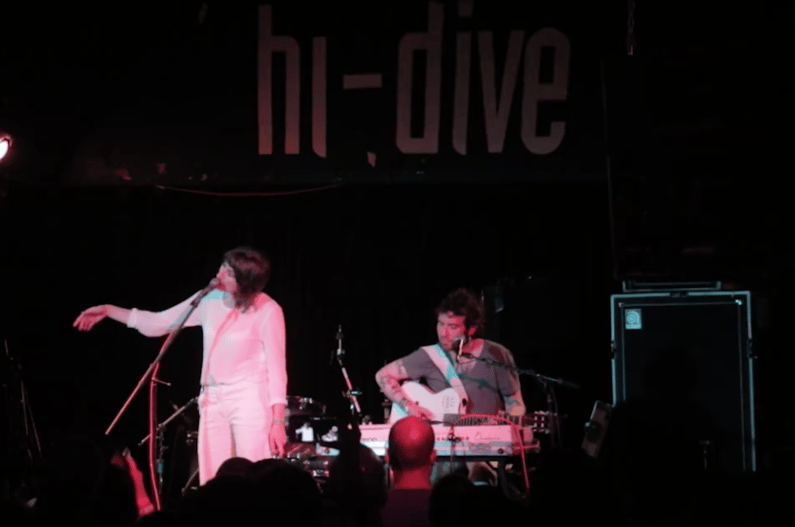
For Clark, the UMS has personal significance. He said he first started working at Hi-Dive before he bought it in 2007. For his first couple of months, he didn't get to know his coworkers... until UMS weekend.
"It's just such a crazy thing," Clark said. "You really are kind of going to war. There's a barrage of people that need your attention, that need drinks. You're just working really hard, and you're working really close with a lot of people because it's all hands on deck the whole weekend. So personally, it kind of bonded me to the Hi-Dive. The first UMS I ever worked really sealed the deal."
He said that UMS feels like an opportunity to reintroduce people to South Broadway street after a year and half of the pandemic.
"It's important that it's back in terms of just celebrating the fact that we did have this crappy year, and that we can all kind of come back together and enjoy seeing music and hanging out on Broadway," he said. "I think it's going to show off just how much Broadway has changed in the last year and a half. Some stuff has changed for the good, some stuff has changed for the worse."
The Hi-Dive, for example, will look a bit different from how people remember it. Clark said that while Hi-Dive shut down last year they took the opportunity to remodel the interior.
Clark said it's a bummer that COVID is getting worse again after they've been working so hard to stay safe. He said that when UMS initially announced its return, it seemed like it'd be a big party celebrating the return of live music.
"It felt like it was gonna be this really fun, end of summer return to normal," he said. "This new wave of the Delta variant has put a damper on it a little bit."
Clark says he's glad at least that Two Parts has implemented the new safety requirements. On September 1, Hi-Dive plans to join other venues who've been asking guests for proof of vaccination or a negative COVID test.
"We're all falling in line. I think it's the smart thing to do," he said. "It's not the end of the world. I think people just need to get over it. Like just go get vaxxed, show your vax card. They have the My Colorado app. It's super easy to do."
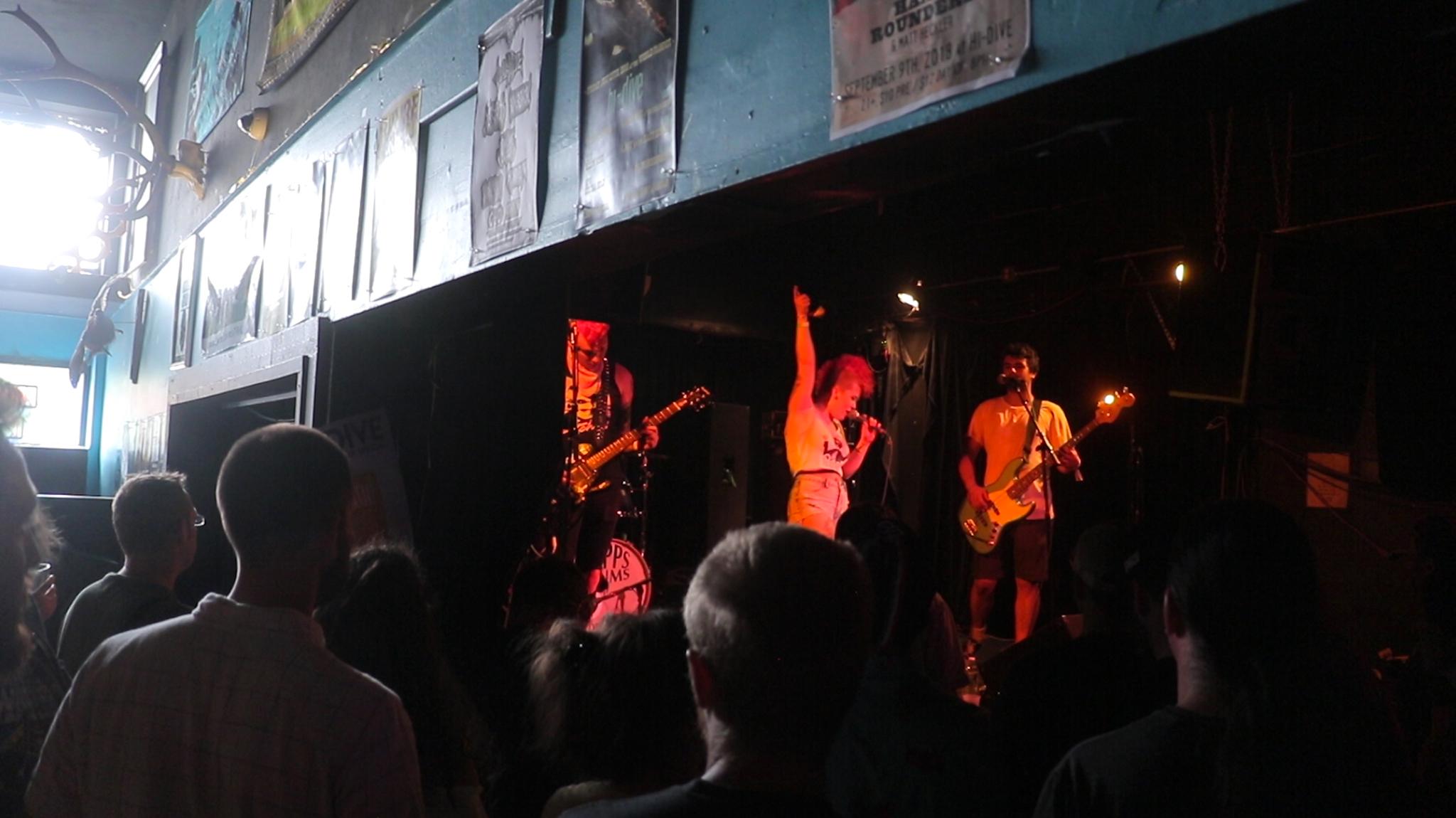
Christian Jensen is the general manager of Pie Hole Denver, a pizza joint whose fast service and close proximity to the main stage has helped to make it a UMS favorite.
Jensen says UMS is without a doubt Pie Hole's busiest weekend of the year, every year -- with the exception of last year. He says they'll have a full staff operating the kitchen all day every day, starting with prep at 6:30 a.m.
"And then the second we open the door at 11, it's a line out the door all day long," Jensen said. "The place is packed. But it's a really good vibe. No one's ever really grumpy or angry. Everyone's here to have a good time get some nice, cheap, delicious pizza in between sets."
He says on a typical, non-UMS Friday night, they make about 100-200 pizzas. During UMS, they make more than 500-600 pizzas every day.
"Obviously, for every restaurant, the pandemic was pretty rough. Thankfully, we didn't have to close during the pandemic," Jensen said. "We had a couple of hiccups, but we've been here the whole time"
Like Hi-Dive, Pie Hole remodeled their shop during the pandemic. Jensen is excited for folks to see the updates, and for people to return to Broadway in general.
"We love the busy-ness, but we also just love being part of the community here on South Broadway. Because during that event, everyone does get together," he said. "It feels like a community."
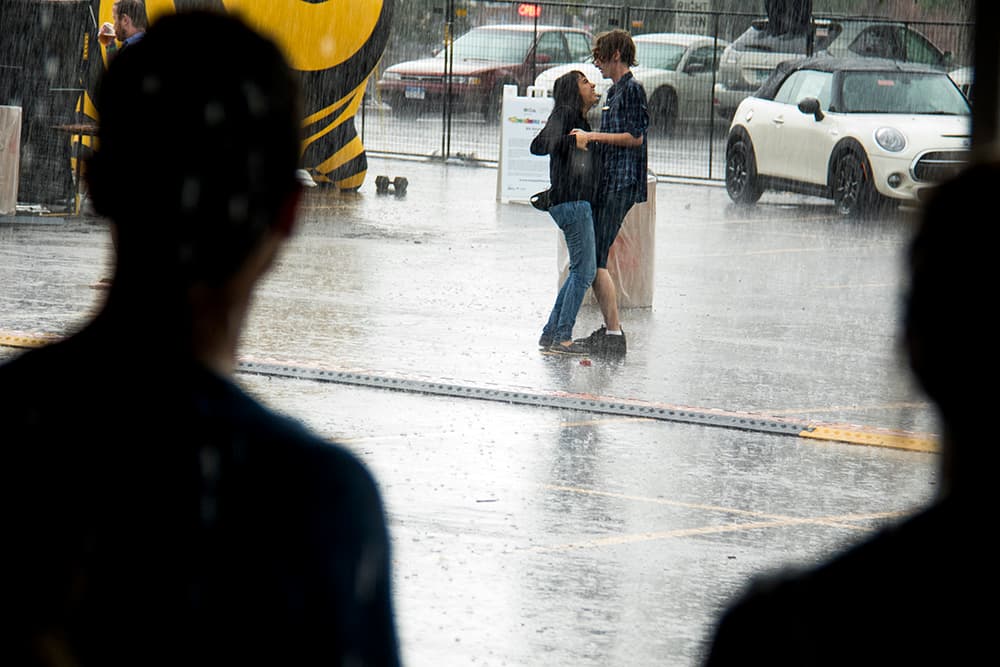
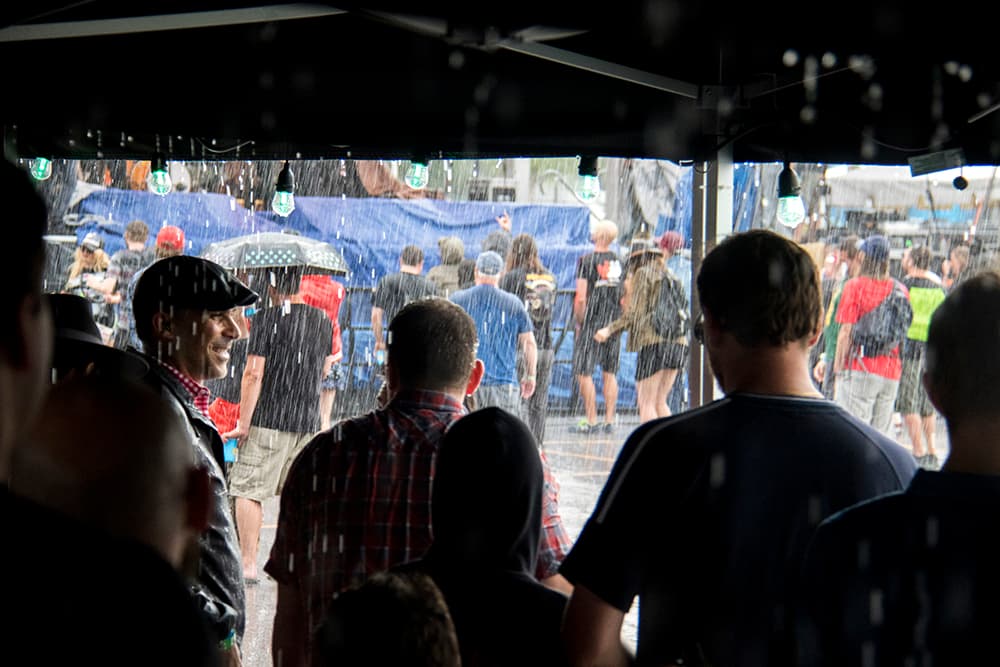
Erika Righter owns Hope Tank, a Broadway gift shop that gives a portion of sales to charity.
She says she's happy that artists will have the chance to play UMS again. For her shop, though, UMS doesn't really offer much of a business boost.
"It's just never been a big shopping opportunity," she said. "People are down here to eat, to drink, and to see music. Which makes sense."
She speculates that people don't want to buy something only to have to drag it around from set to set. So this year, Hope Tank is selling fanny packs, neck fans and other products to help make UMS more enjoyable.
Righter says there's an illusion that business is back. She says that isn't quite true for retail shops.
"People have returned to restaurants and bars and concerts, but they have not really returned to shopping, and daytime neighborhood exploration in their own neighborhoods," she said.
While people might not shop much during UMS, Righter hopes that it might remind people that the businesses along Broadway are there, and encourage them to come back to shop.
"What I hope is that that will reignite folks to invest in the community that makes Broadway so special," she said. "Because we are predominantly independently owned, very micro businesses. We rely on business."
Local R&B, pop and soul singer YaSi is excited to return to UMS.
"As a local musician, it was always a chance to prove myself, in a way, with my performances," she said.
The first year she performed at UMS, her set was at a stage on the far edge of Broadway, on a Sunday in the middle of the day, when she says everyone was hungover. Now, she's performing the mainstage at Goodwill, plus a secret show Friday night at midnight.
"For me, it's a nice benchmark of where I am as an artist, how much I'm growing." she said.
For musicians, the pandemic meant a pause in live performance. A couple months ago, YaSi performed at Levitt Pavilion. It was the first time she'd performed for a live audience since the start of the pandemic.
"That whole time, I felt like I was performing for the first time ever again," she said. It was overwhelming. She felt a bit out of practice.
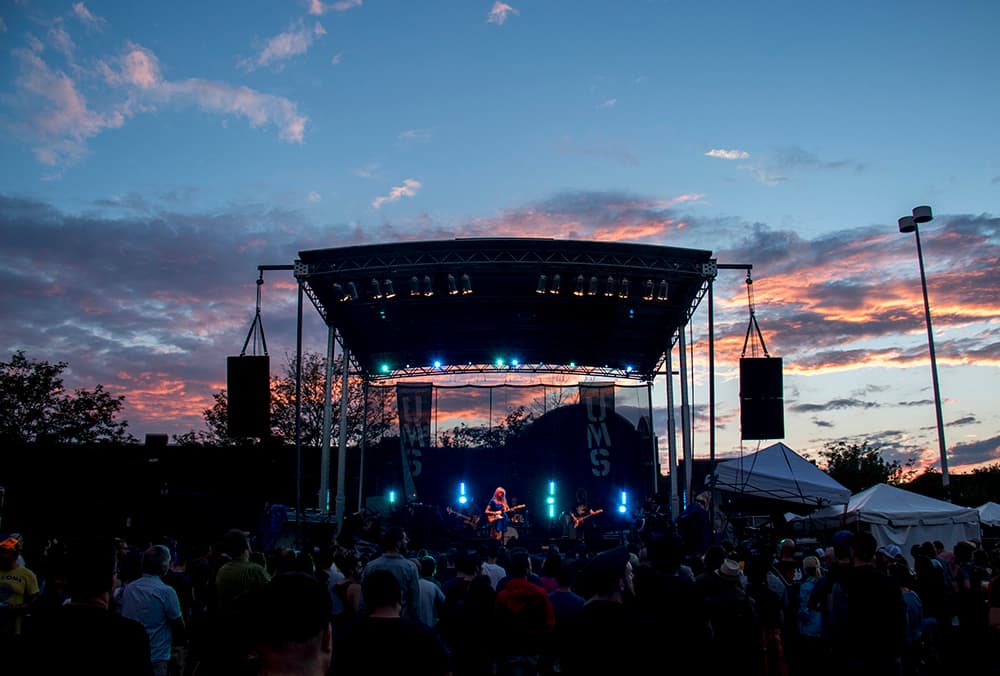
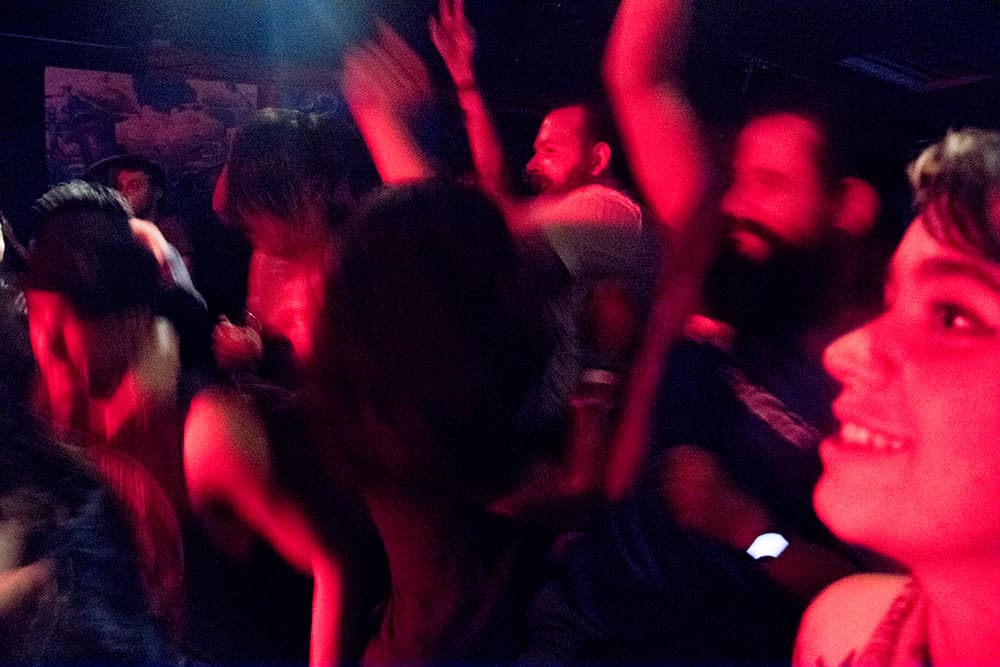
"I was so excited to be in front of people again, that I kind of forgot how to just be a performer," she said. "It's a job at the end of the day, and you're there to entertain. You're there to give people a show. And for me, I was just like, 'Oh my God, I can't believe I'm in front of people again, this is insane! I hope they're liking it. Are they liking it?'"
She's done livestream shows during the pandemic, but says you don't feel the same level of recognition.
"This last year was extremely isolating as an artist, because your social media interaction was how you knew people are listening. And when that fluctuates as much as it does, it's hard to kind of have your head on straight at times."
YaSi says artists can make good money performing gigs. She said a single performance can make her more money than if someone streamed her song nonstop for a week. She has a day job as a graphic designer, and says there are times she makes more money from gigs than she does at her day job.
"So when the pandemic happened, it was really hard," she said. "I think a lot of musicians made a lot more music. And in order to make a lot of music and release it, you need money for marketing. You need money for mixing, mastering, album covers, and it's really hard to have money for that when your income that allows you to do that is no longer there."
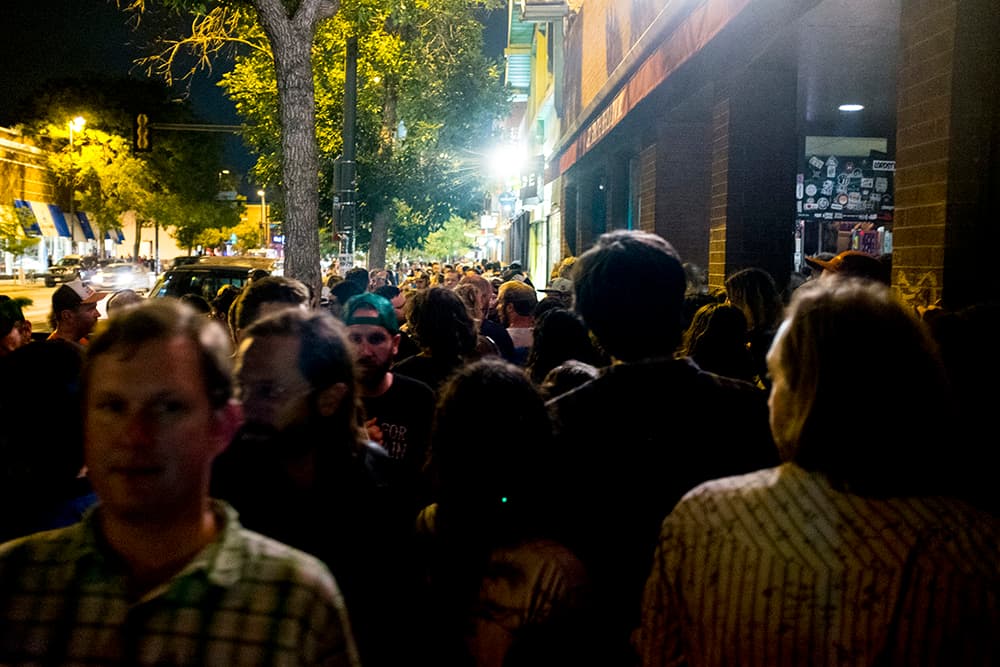
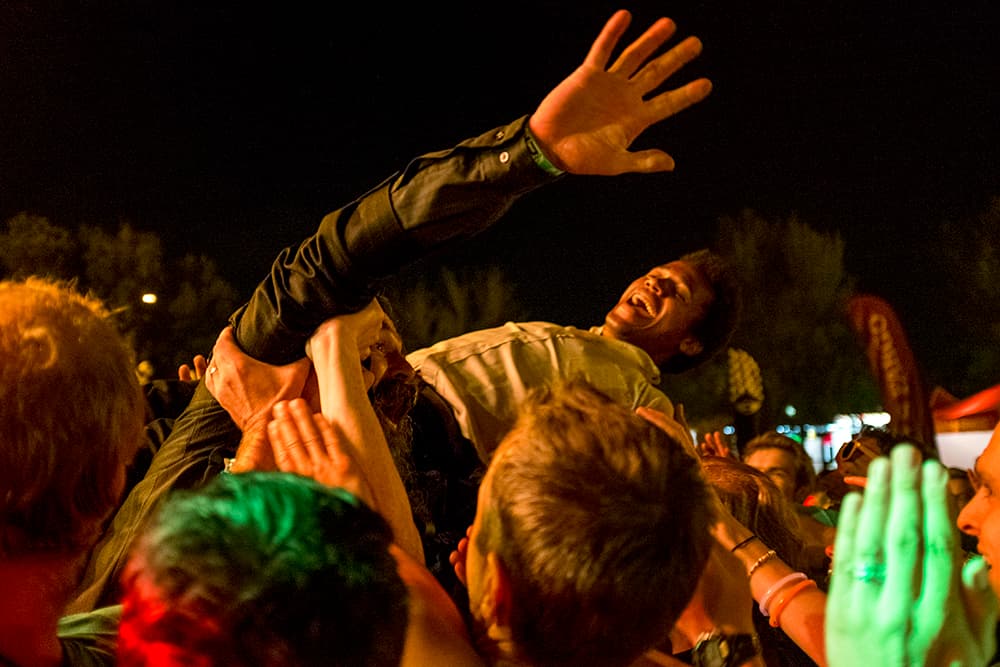
Local pop and R&B artist Adiel Mitchell performed at UMS in 2019, at the Irish Rover.
"It was actually super dope," he said. "I was relatively new to the scene, so not many people really knew what to expect. "
He's a dancer as well as a singer, and likes to engage the audience. Sometimes, he jumps into the crowd. He remembers performing from the audience at UMS, and then stepping out of the venue to sing to people walking by outside.
"And next thing you know, I hear my dad's voice on a mic. And I look back, and my dad is on stage hyping the crowd up. An impromptu wingman moment," he said. "The spontaneity of it just lit up the room because no one no one expected that."
The last year and half during the pandemic, that kind of spontaneity and audience engagement hasn't been possible. Mitchell doesn't mind livestream shows, but he says he missed the live energy. His first live, in-person show was a Sofar Sounds show in mid July
"It was actually so good. Like, so good," Mitchell said. "I think the energy was right. Sofars are always cool because people are coming to see live music. It's not really like you're playing to fill the room. You're not playing background music. People are intentionally coming out to this event because they want to see live music."
Mitchell says it's the same thing with UMS- that people who attend festivals tend to engage more with the music.
"I'm stoked. I feel like UMS is legendary. And they always have such amazing talent. So I feel honored to just be considered to be a part of it," he said. "It's also a good way for music people to connect. I think that that's the best thing."
The return to live performance means, for Mitchell, connection. Between him and the audience, but also between audience members.
"I feel like live performance creates a dynamic in the room that people who don't know each other from completely different backgrounds can still be bobbing their head to the same song, he said. "And then they start smiling at each other. Next thing you know, they're dancing with each other. And now, there's a friendship or relationship that is formed. I think there's a magic in the air in a live performance"
He says UMS is an opportunity for artists to show the world music they wrote during the pandemic.
"I feel like for myself and fellow musicians, I think that this is a time where we can finally show off what we've been working on." He said the last couple of years have been a blessing in disguise. They've allowed him to practice music and work on his album." I'm super pumped just to be onstage and be in front of people and kind of open those doors and share kind of with people like the things that I've learned over the last couple of years. And hope that it inspires them to want to share whatever happened with them over the last couple of years to somebody else."
